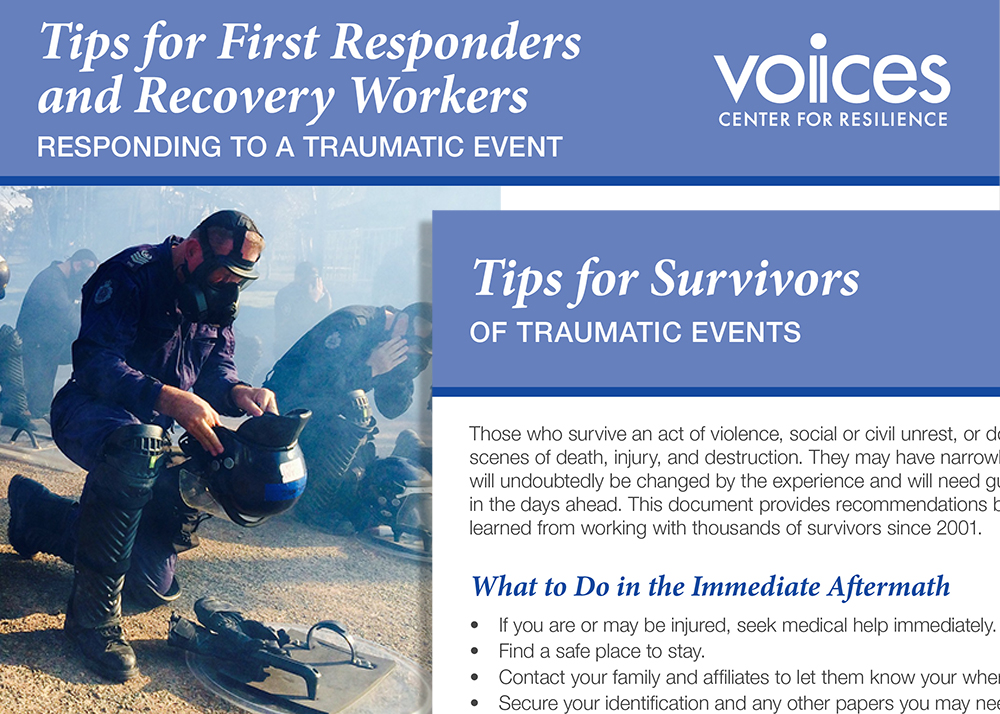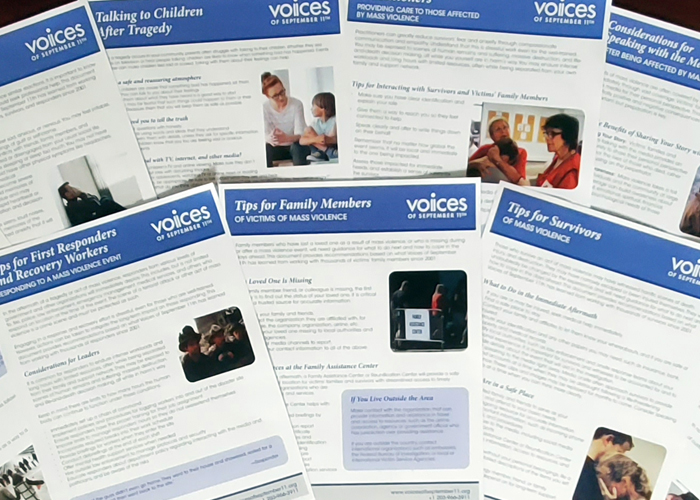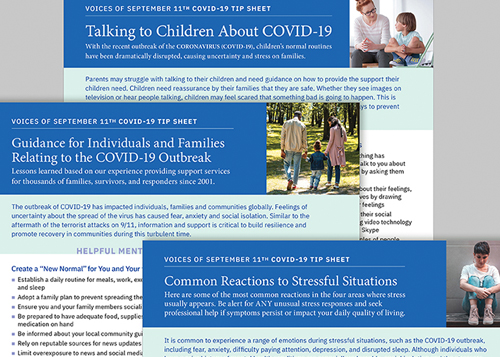Communities in Crisis
 When a tragedy occurs – whether it is the death or injury of an individual, or an act of mass violence – the effects of grief and trauma often reverberate beyond families and friends. The broader community may also require long-term support to promote healing.
When a tragedy occurs – whether it is the death or injury of an individual, or an act of mass violence – the effects of grief and trauma often reverberate beyond families and friends. The broader community may also require long-term support to promote healing.
Traumatic events are part of our daily lives. Local resources and a coordinated response are needed to provide immediate and long-term support. Following any tragedy, individuals who lose a loved one, those who are injured, survive, witness, or respond to the event are often likely to experience grief and trauma.
Acts of mass violence, social unrest and natural disasters are occurring at an alarming rate in the United States and abroad. Most recently, the COVID-19 pandemic continues to impact communities around the globe. The cumulative effect of these traumatic events is causing an increase in mental health conditions for the foreseeable future.
Healing from tragedy and building resilience takes time, requiring continuity of care and access to resources from a trusted source to ensure long-term recovery. For 20+ years VOICES has been a leading proponent of long-term support, by providing an array of programs for victims’ families, survivors and responders, based on their evolving needs.
VOICES is committed to leveraging our expertise acquired from our work with the 9/11 community, to help those impacted by other tragedies. Working collaboratively with our like-minded partners, we share our lessons learned to assist individuals and communities in crisis, in the United States and abroad.
VOICES continues to support communities in crisis through a myriad of services, including providing guidance on commemoration and memorial planning; mental health programs; and outreach support to an expanding number of communities impacted by tragedy such as Charleston, SC, Newtown, CT, Orlando, FL, Parkland, FL, Paris, France, and London, UK.
To augment these outreach activities, VOICES Tip Sheets and Resources Guides outline best practices for short-term response and long-term recovery.
If you and your family, or your community are in need of support, email us at support [at] voicescenter.org (Support[at]VoicesCenter[dot]org), or call our office at 203-966-3911.
The principles discussed in the eBook focus on how to assist communities in preparing for, responding to, and recovering from acts of mass violence. The ebook is based on interviews with service providers responding to 9/11, the Oklahoma City bombing, and the shootings at Virginia Tech, Northern Illinois, and Tucson.
In the aftermath of a traumatic event – an act of violence, social or civil unrest, or domestic terrorism – there can be loss of life, injury, or severe stress. Those impacted are often in shock, suffer from anxiety or fear, and may be uncertain about how to access critical information, mental health resources, and support.
In the aftermath of an act of mass violence or tragedy, those impacted are often in shock and uncertain about how to access critical information. Whether you are a family member who lost a loved one, or someone who survived or witnessed the event, you will need guidance on how to find resources.
The COVID-19 pandemic is the deadliest global health crisis we have faced in our lifetime. Communities around the world have imposed much-needed restrictions by implementing vaccination programs, masking requirements, quarantines, and social distancing to slow down the spread of the virus.

 Preparing for After
Preparing for After VOICES Tip Sheets Following Traumatic Events
VOICES Tip Sheets Following Traumatic Events VOICES Mass Violence Tip Sheets
VOICES Mass Violence Tip Sheets Coronavirus (COVID-19) Tip Sheets
Coronavirus (COVID-19) Tip Sheets